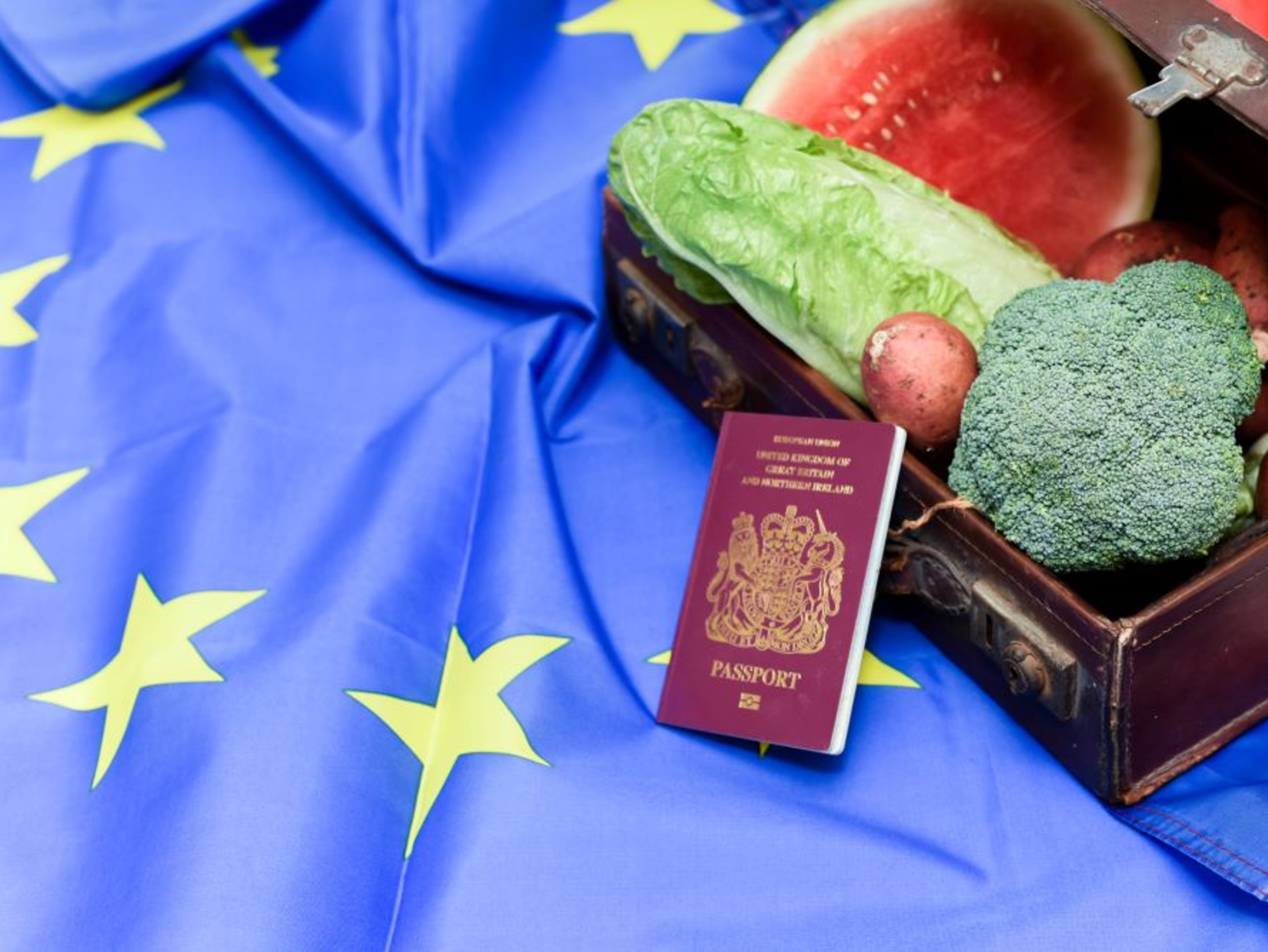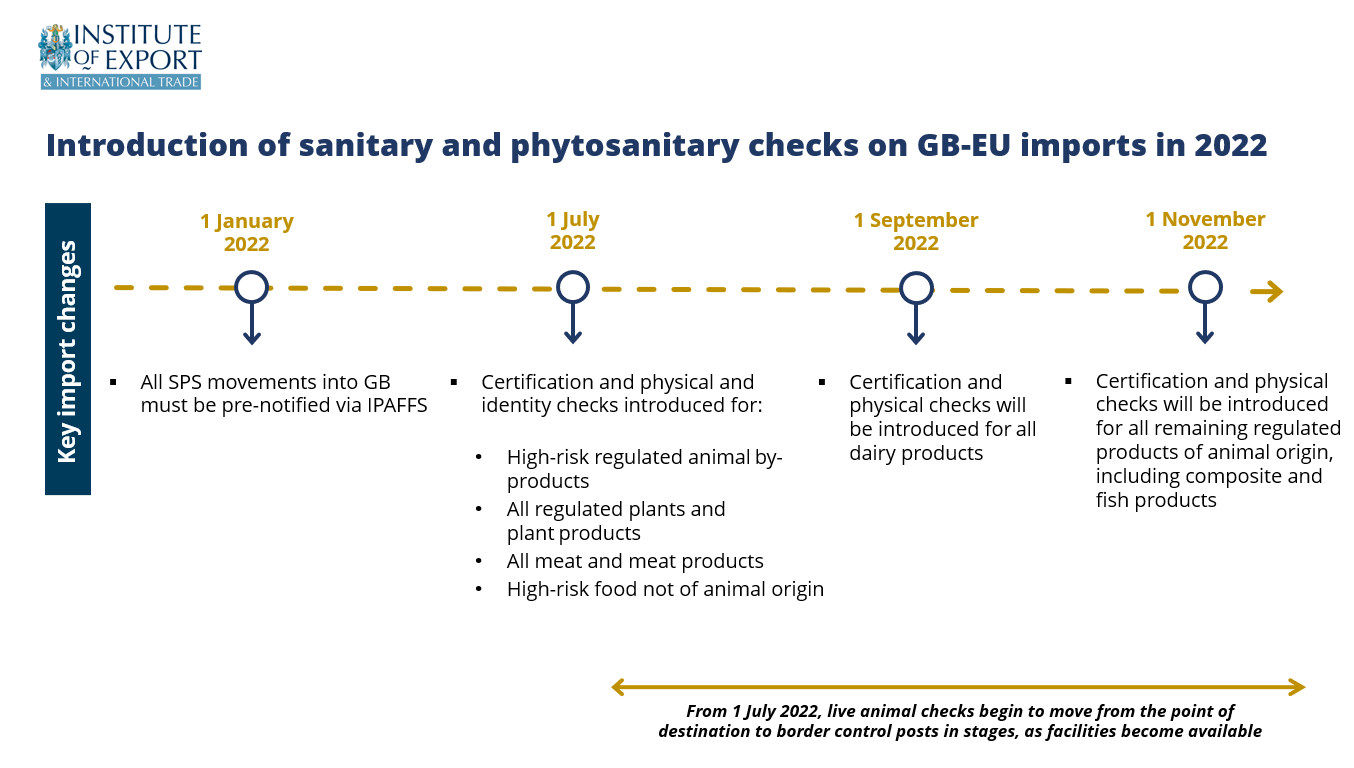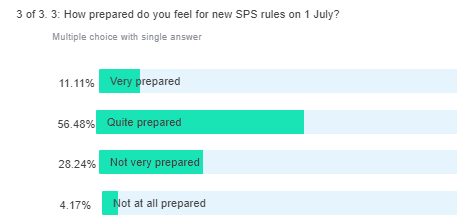
A government spokesperson has signalled that post-Brexit controls on agrifoods could be postponed for the fourth time within the next few weeks.
The spokesperson told Politics Home: “We are keeping this issue under careful review, given ongoing supply chain disruption – including as a result of Russia’s illegal invasion of Ukraine – and wider cost of living pressures.”
They added: “It is precisely because of Brexit that we’re able to set an import controls regime which is best suited to our own needs.”
Delay the checks
Although the PM has yet to make a decision on delaying new checks due from July, some in Number 10 are said to be “sympathetic” to the idea.
Senior figures, including Brexit opportunities minister Jacob Rees-Mogg and former Brexit minister Lord Frost, have been pushing for the delay, the FT reported in March.
The rules
The next phase of the implementation of the UK’s Border Operating Model – currently scheduled for 1 July 2022 – will include the introduction of new documentary and physical checks for:
- high-risk animal-by products
- regulated plants and plant products
- all meats and meat products
- high-risk foods not of animal origin
For animal-origin goods, this will include the completion of an Export Health Certificates, while Phytosanitary Certificates will be required for plants and plant-based products.
Checks on dairy products are due to follow on 1 September, with all other regulated products of animal origin including composite and fish products included from 1 November.

(The current timeline for when SPS checks will be introduced on EU agrifoods entering Britain)
Don’t get complacent
Despite murmurings of potential delays going back some months, IOE&IT director general Marco Forgione has warned importers that it is better to be ready for the new rules in case they do come into force on 1 July.
He said: “We have already seen a significant shock to the global food supply chain due to the war in Ukraine and the Covid-induced logistics issues. If food importers in Great Britain are not fully prepared for these changes, we could see a further rise in the cost of living for families and shortages of Continental food staples in British supermarkets, as well as long delays at the border.”
Not ready
However, according to a poll on a recent IOE&IT webinar, almost a third of businesses said they were not yet prepared for the changes.
Rob Booth, the IOE&IT Academy trade and customs consultant presenting on the webinar, said this was a “fair reflection” given the scale of the rule changes and the new information that traders are having to understand.
He added that the available guidance from government “can be difficult to navigate” and advised traders to “discuss requirements with your supplier, carrier and British customs broker; utilise the DEFRA microsite for imports; and sign up to DEFRA’s weekly import newsletter for animal products or the Plant Health Portal for plants and plant products”.

Mixed industry response
Other trade bodies, including the Cold Chain Federation and the Food and Drink Federation, have backed a delay to avoid a collapse in supply chains.
Shane Brennan, chief executive of the Cold Chain Federation, told the Independent that the checks would be a “nightmare” for small businesses, leading to the potential “collapse” in trade among “small volume” British businesses.
Other groups, such as the British Veterinary Association and Scotland Food and Drink, have opposed a possible postponement.
‘Nightmare’ scenario
According to the Daily Mail, the cost of an average basket of shopping has gone up by almost £3 in the past year as inflationary price rises hit a range of staples including bread, milk and pasta.
These come on top of energy hikes that are putting increases of £700 a year on bills for consumers.



